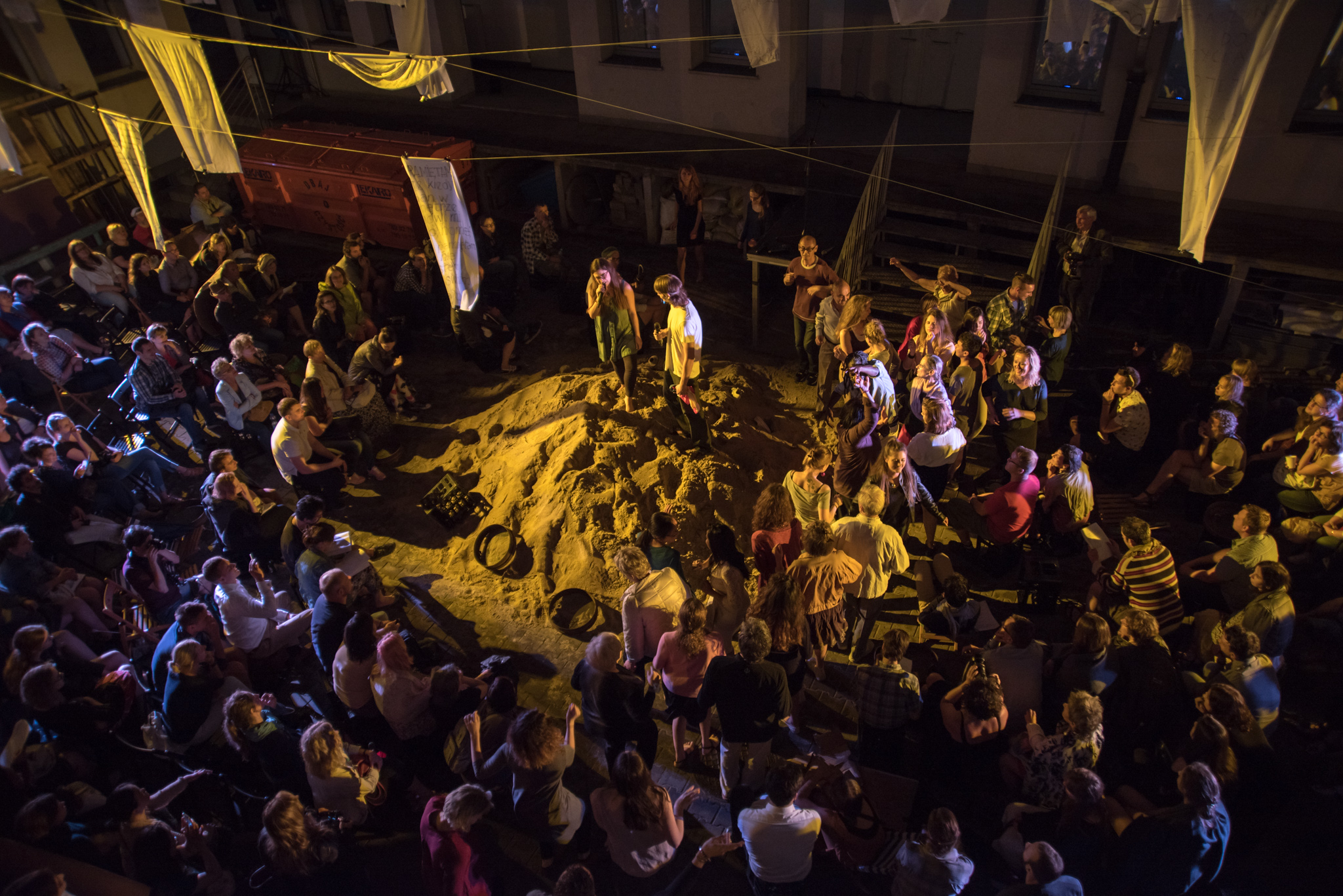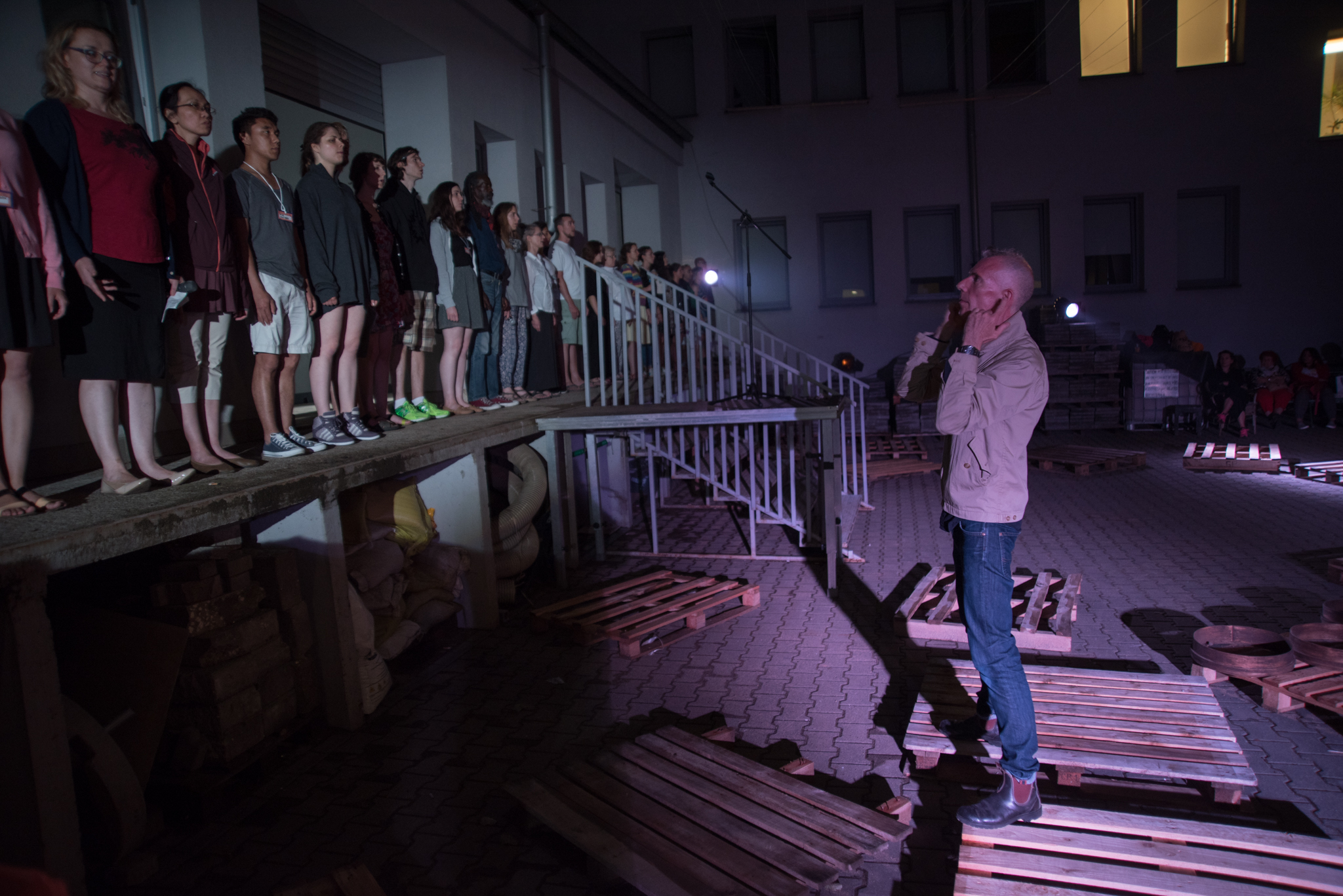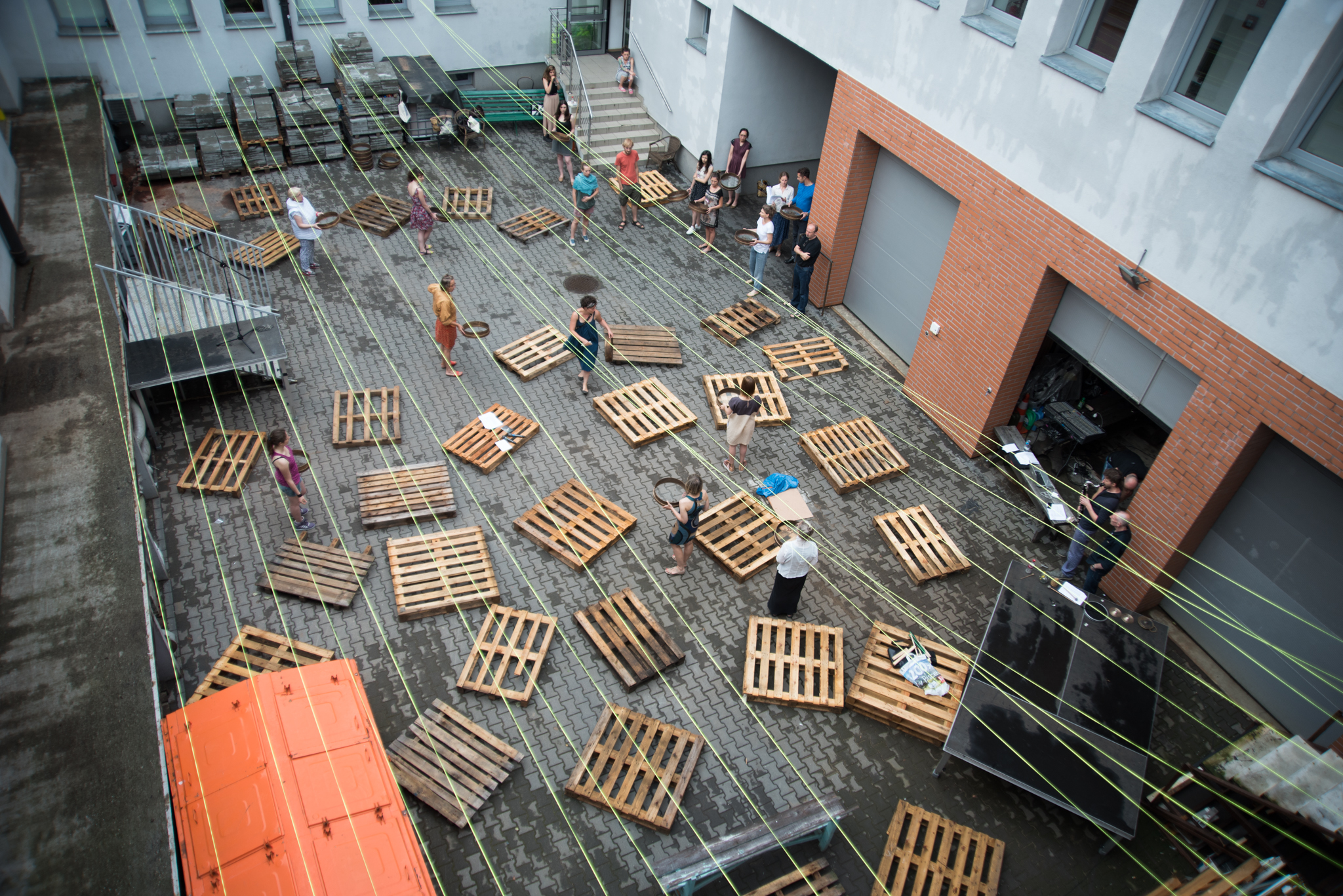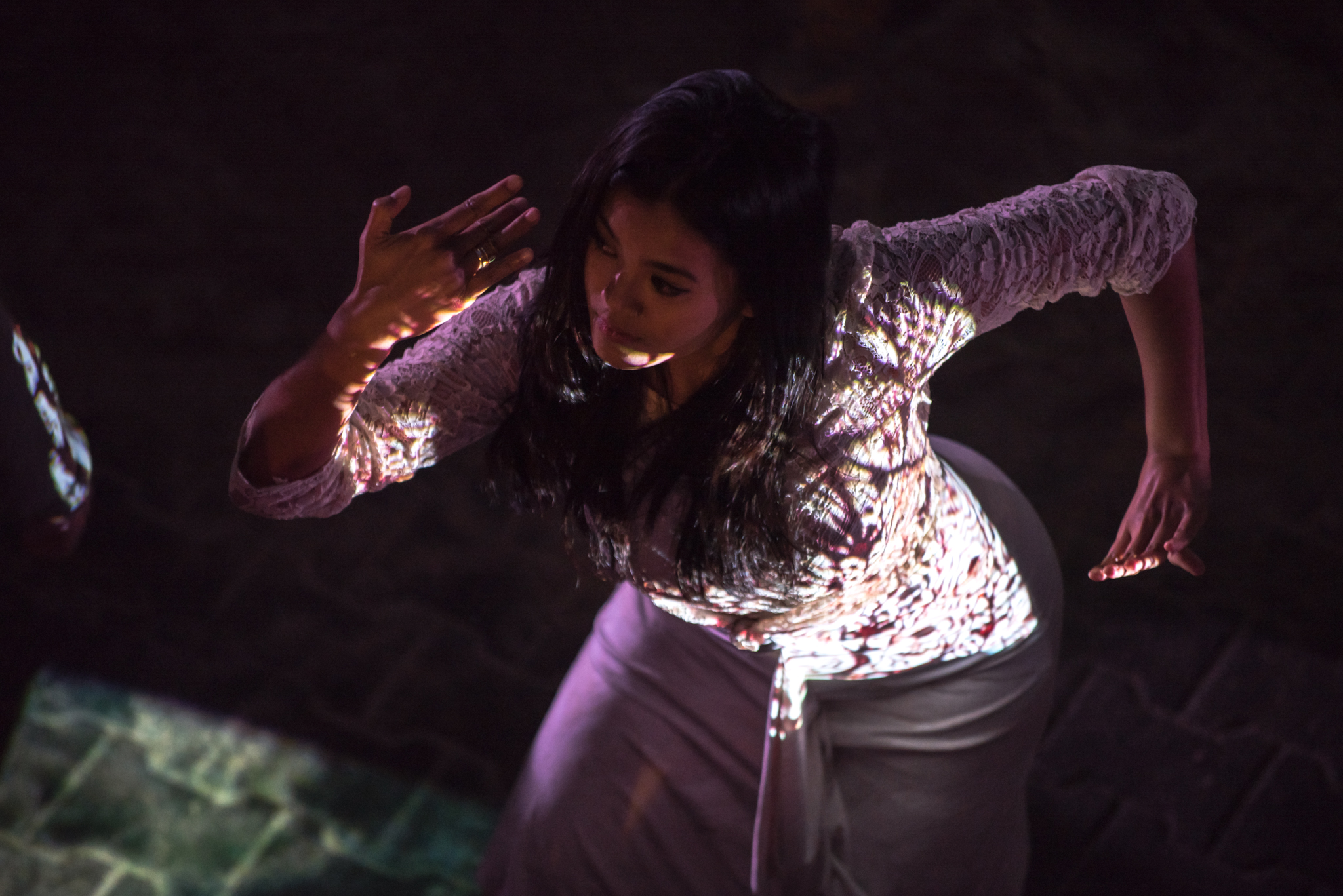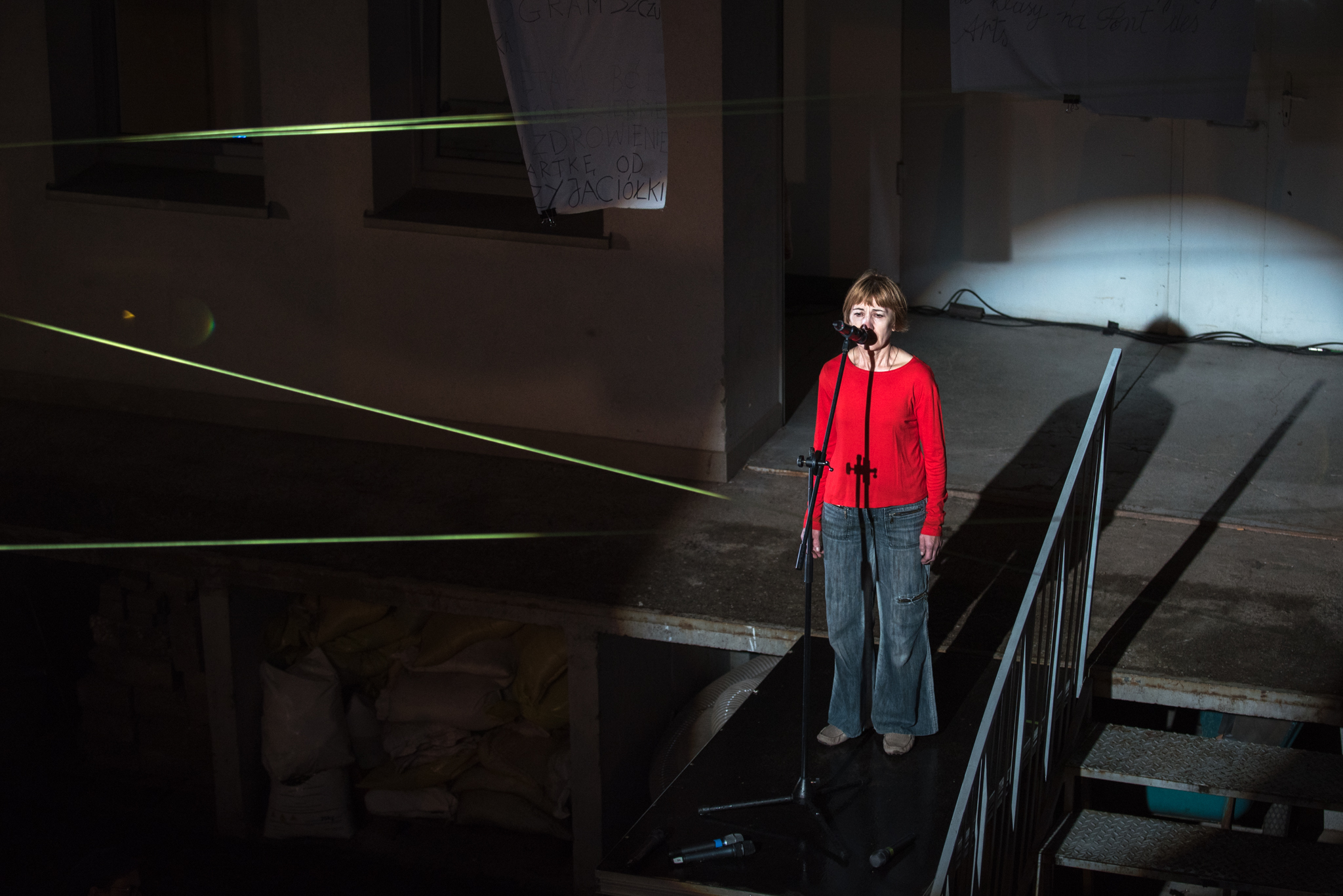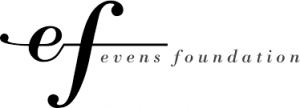How does memory work, what do we remember and what do we forget? How do we reconstruct familiar places, people and emotions from scraps of memory and recollection? The events of 2015 related to the arrival of refugees in Europe and the reactions of our society to this phenomenon provided the impetus for the performance. How did it happen that we forgot that we ourselves were refugees, had to flee from war or persecution? The inspiration for the work of the multi-generational group Strefa WolnoSłowa, which brought together refugees, migrants and Poles, was the book I Remember That… by Georges Perec, a fragmentary story about Paris, evoking memories, small incidents from everyday life, places and stories that cannot be found in history books, but which significantly formed the fabric of everyday life.
From the stories told by the participants of the Strefa Wolnosłowa workshops, emerges a multitude of images describing the history of the post-war years from the perspective of people of Polish origin and those who came to Poland in search of a better life, love, escape from persecution.
Small stories intertwine with events from the great history, and the viewer is invited to put this scattered puzzle together into his or her own atlas, where he or she will decide for themselves which of the events and images are most relevant in describing today’s world.
Performing: Teresa Ferraris, Viera Hres, Anton Snotau, Veranika Los, Jolanta Pacewicz, Barbara Bernard, Alejandra Castelblanco, Krystyna Gielecińska, Aliaksandra Shapialevich, Izabella Pietura, Kamilla Tantasheva, Barbara Herman, Alma Sarahi, Tashi Woetsang, Fenglan Xu , Darinka Nedeljkovic, Yona Aloewie, Diah Anggraini Martin, Małgorzata Zagajewska, Elżbieta Mazur, Justyna Laskowska-Otwinowska, Magdalena Andrzejewska, Abdellah Yamani, Yu Koyanagi, Vita Shkaraban, Olivia Klochko, Mamadou Ba, Andrzej Krzymowski, Magdalena Derrien, Reza Samadzadeh, Marta Szepietowska, Bartłomiej Smoleński, Szymon Barzyc, Thomas Hildenbrand, Magdalena Zawadzka, Karolina Soja, Iryna Kovalchuk, Maria Roguska, Monika Śliwińska, Bogdan Melniczuk, Tatiana Roslyak
Directed by: Alicja Borkowska
Artistic supervision: Paweł Łysak
Text: Tomasz Gromadka, Katarzyna Mazur, Artur Pałyga, Przemysław Pilarski
Music: Ray Dickaty, Piotr Mełech
Choreography: Aleksandra Bożek-Muszyńska, Katarzyna Stefanowicz
Visualizations: Maria Porzyc
Production: Weronika Chinowska, Magdalena Duszyńska-Łysak
Organiser: Fundacja Strefa WolnoSłowa
Partners: Teatr Powszechny im. Zygmunta Hübnera, Miasto Szczęśliwe, Stół Powszechny, Cantieri Meticci, CK Points, kunstZ, Instytut Badań Literackich/ Magazyn Widok, Universita di Bologna, ARCI, Muzuem Sztuki Nowoczesnej, Ludoteka Roszada
Media partners: Dwójka Polskie Radio, TVP 3 Warszawa, Gazeta Wyborcza, Co jest grane 24, Wyborcza.pl, metrocafe.pl, Activist, Kontynent Warszawa

